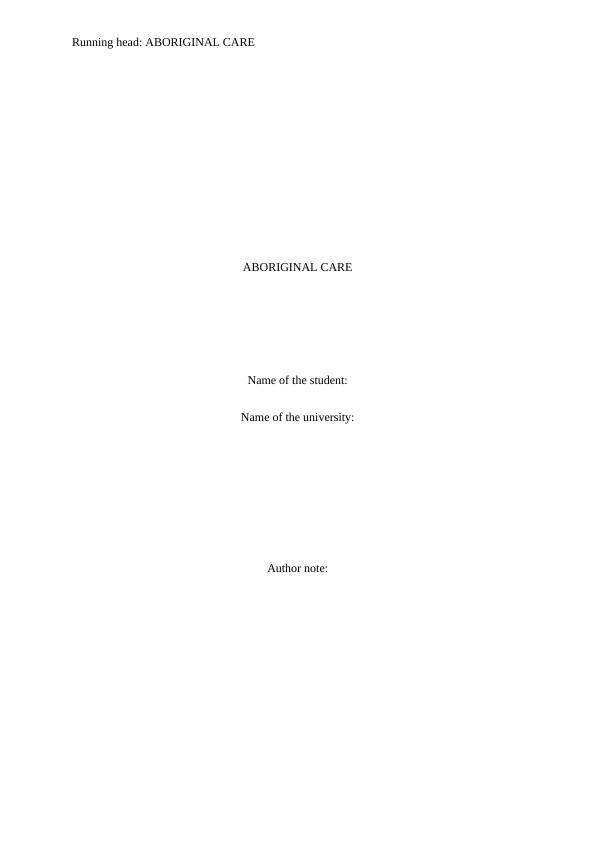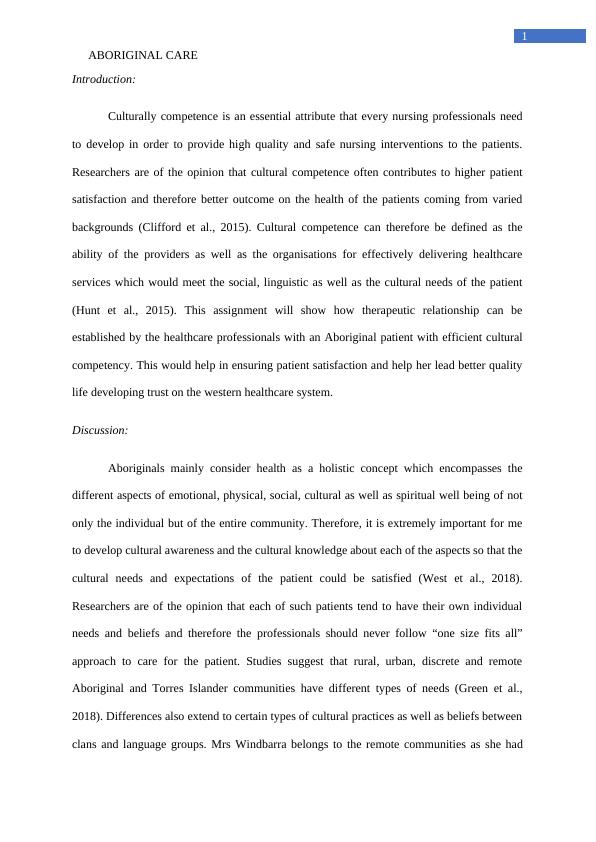Developing Cultural Competence for Providing Therapeutic Relationship with Aboriginal Patients
This assignment requires critical analysis of two media items related to a contemporary Aboriginal and Torres Strait Islander peoples’ health and wellbeing issue, and the impact of negative media portrayals on healthcare professionals' care for the person.
8 Pages2346 Words324 Views
Added on 2023-06-08
About This Document
This assignment discusses the importance of cultural competence for providing therapeutic relationship with Aboriginal patients. It highlights the need for cultural awareness, communication, and trust in nursing interventions. The discussion covers the different aspects of Aboriginal culture and the challenges faced by nursing professionals in providing culturally appropriate care. The article also provides guidelines for developing effective communication and building rapport with Aboriginal patients and their families.
Developing Cultural Competence for Providing Therapeutic Relationship with Aboriginal Patients
This assignment requires critical analysis of two media items related to a contemporary Aboriginal and Torres Strait Islander peoples’ health and wellbeing issue, and the impact of negative media portrayals on healthcare professionals' care for the person.
Added on 2023-06-08
ShareRelated Documents
End of preview
Want to access all the pages? Upload your documents or become a member.
Cultural Considerations in Healthcare
|11
|3565
|42
Reflection on Cultural Competent Care
|11
|3132
|253
Case Study Assignment: Healthcare Inequalities for Aboriginal and Torres Strait Islanders
|8
|1902
|394
Nursing Assignment: Perception Analysis
|8
|1948
|85
Reflective Essay on Cultural Factors Influencing Healthcare Delivery for Aboriginal and Torres Strait Islander People
|13
|2980
|167
Rising to the Challenge: Cultural Safety in Nursing
|4
|740
|49



